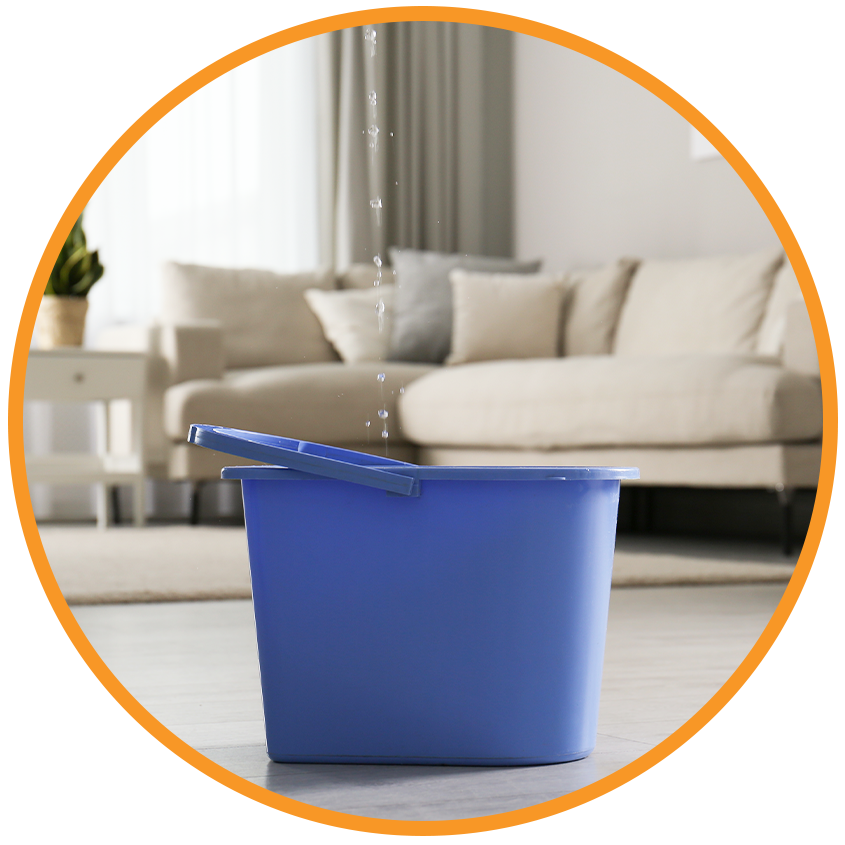Mar 3, 2025
10 Hidden Threats Causing Water Damage in Commercial Properties (And How to Prevent Them)

10 Hidden Threats Causing Water Damage in Commercial Properties (And How to Prevent Them)
Water damage in commercial properties is more than an inconvenience—it can disrupt operations, cause costly repairs, and even lead to legal liabilities. The key to Commercial Water Damage Prevention is understanding the common causes and implementing proactive strategies. Regular inspections can help detect
before they cause severe structural issues.
Below, we unveil the top ten hidden culprits of commercial water damage and provide practical solutions to safeguard your property.
1. The Silent Roof Leaks: An Overlooked Menace
A small leak in your roof may seem harmless, but over time, it can weaken structures and lead to major water damage.
How to Prevent Roof Leaks
- Schedule regular inspections (twice a year and after storms)
- Clear gutters and downspouts to prevent water buildup
- Fix damaged shingles or flashing immediately
- Consider installing a waterproof roof coating
2. Malfunctioning Toilets: A Plumbing Nightmare
Faulty toilets contribute significantly to commercial water damage, often going unnoticed until major flooding occurs. A proactive maintenance plan is essential to prevent
in commercial buildings.
Key Prevention Tips
- Inspect supply lines for cracks or deterioration
- Replace hoses every three to five years
- Install water-sensing alarms in restrooms to detect leaks early
- Ensure proper sealing around toilet bases to avoid seepage
3. Sprinkler System Failures: When Fire Safety Backfires
While essential for fire safety, outdated or malfunctioning sprinkler systems can cause extensive water damage.
How to Keep Sprinkler Systems in Check
- Conduct routine maintenance and testing
- Install water flow sensors to detect anomalies
- Ensure pipes are insulated to prevent freezing
- Verify compliance with fire safety codes
4. Water Heaters on the Brink: A Ticking Time Bomb
Old or neglected water heaters can rupture, causing widespread flooding and property damage.
Best Practices for Maintenance
- Replace heaters every 7-10 years
- Use drip pans to catch minor leaks
- Install an automatic shut-off valve
- Flush the tank annually to prevent sediment buildup
5. HVAC System Failures: The Hidden Drip Disaster
Air conditioning and heating units can produce condensation, which, if not properly drained, leads to mold and water damage. Regular plumbing checks are necessary to identify
early.
HVAC Water Damage Prevention
- Clean drain lines regularly to prevent clogs
- Check evaporator coils for ice buildup
- Inspect connections and hoses for leaks
- Use a dehumidifier in high-humidity areas
6. Vacant Buildings: Water Damage Waiting to Happen
Unoccupied properties often lack regular oversight, allowing leaks and water damage to go undetected.
Preventive Measures
- Turn off unnecessary water supplies when the property is vacant
- Install remote monitoring systems for temperature and humidity
- Schedule periodic property checks
- Seal doors and windows to prevent rainwater intrusion
7. Boiler and Machinery Leaks: Equipment-Related Water Hazards
Leaking boilers and industrial machinery contribute to water damage, especially in large facilities.
Ways to Minimize Risk
- Place water barriers around boilers
- Ensure proper drainage systems
- Schedule routine maintenance checks
- Use leak detection sensors
8. Sewer and Drain Backups: The Mess No One Wants
Blocked drains and sewer line backups can cause water to flood into your property, creating unsanitary conditions.
Preventive Strategies
- Install check valves to prevent backflow
- Regularly clean and inspect sewer lines
- Avoid flushing non-biodegradable materials
- Use flood barriers in high-risk areas
9. Water Tank Failures: A Structural Weakness
Water tanks provide essential storage, but when they fail, they can unleash thousands of gallons of water into a building.
Key Maintenance Tips
- Inspect tanks regularly for corrosion
- Perform ultrasound testing on metal tanks
- Ensure compliance with safety codes
- Monitor pressure levels to avoid overfilling
10. Water Main Breaks: The Uncontrollable Threat
A burst water main can flood streets and commercial buildings, often with little warning.
How to Protect Your Property
- Identify and reinforce weak pipes
- Replace old water mains (especially if over 60 years old)
- Have an emergency response plan in place
- Monitor underground piping with leak detection technology
Extra Measures for Commercial Water Damage Prevention
To strengthen your Commercial Water Damage Prevention efforts, consider these additional strategies:
Smart Water Monitoring Systems
- Leak detection sensors to catch small leaks before they escalate
- Automatic shut-off valves to prevent flooding
- Flow sensors to identify unusual water usage
Emergency Preparedness Plan
- Educate employees on water damage risks
- Create a step-by-step response plan
- Keep contact information for emergency services handy
- Conduct regular water damage drills
FAQs: Commercial Water Damage Prevention
1. What are the first steps to take after discovering water damage?
- Shut off the water source if possible
- Document the damage with photos
- Contact a professional restoration company
- Begin water extraction and drying immediately
2. How often should I inspect my commercial plumbing system?
- At least twice a year, with additional checks after storms or freezing temperatures
3. Can insurance cover water damage in commercial properties?
- It depends on your policy. Standard commercial property insurance often covers sudden and accidental damage but may not include gradual leaks or poor maintenance.
4. What’s the most cost-effective way to prevent commercial water damage?
- Installing smart water monitoring devices and conducting regular inspections are the most affordable long-term solutions.
Final Thoughts
Water damage can be devastating to businesses, but with proactive Commercial Water Damage Prevention measures, you can significantly reduce risks. Regular maintenance, early detection systems, and emergency preparedness can help safeguard your commercial property from costly damage.
By staying vigilant and implementing these strategies, businesses can ensure longevity, maintain operational stability, and avoid unnecessary repair expenses.
More Details